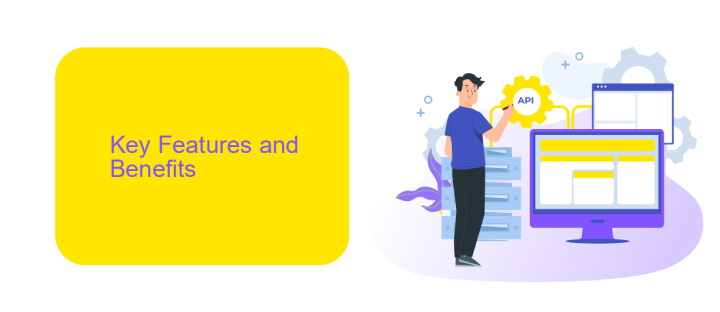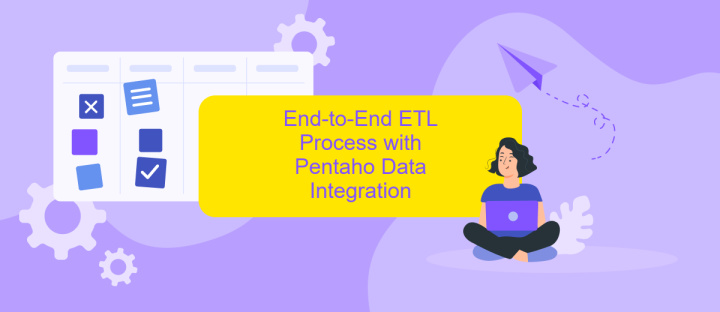Pentaho Data Integration ETL
Pentaho Data Integration (PDI), also known as Kettle, is a powerful, open-source ETL (Extract, Transform, Load) tool designed to streamline data management processes. With its user-friendly interface and robust capabilities, PDI enables organizations to efficiently gather, cleanse, and analyze data from multiple sources, enhancing decision-making and operational efficiency. This article explores the key features, benefits, and practical applications of Pentaho Data Integration.
Introduction to Pentaho Data Integration ETL
Pentaho Data Integration (PDI), also known as Kettle, is an open-source ETL (Extract, Transform, Load) tool that facilitates data integration processes. PDI allows users to extract data from various sources, transform it according to business rules, and load it into a target database or data warehouse.
- Data extraction from multiple sources
- Data transformation with powerful tools and functions
- Data loading into various databases and data warehouses
- Support for big data and cloud environments
- Extensive community and enterprise support
For enhanced integration capabilities, services like ApiX-Drive can be used alongside PDI. ApiX-Drive offers a seamless way to connect various applications and automate data workflows, allowing for more efficient and effective data management. By leveraging such tools, businesses can streamline their data processes and ensure high-quality data integration.
Key Features and Benefits

Pentaho Data Integration (PDI) offers a robust suite of features designed to streamline and enhance the ETL (Extract, Transform, Load) process. With its intuitive drag-and-drop interface, users can easily design complex data workflows without extensive coding knowledge. PDI supports a wide range of data sources, including relational databases, cloud storage, and big data platforms, ensuring seamless data integration across diverse environments. Additionally, its advanced data transformation capabilities allow for efficient data cleansing, enrichment, and aggregation, providing high-quality data for analytics and reporting.
One of the standout benefits of PDI is its flexibility and scalability, making it suitable for both small-scale projects and large enterprise solutions. The tool's extensive library of pre-built connectors and plugins supports integration with various third-party applications and services, such as ApiX-Drive, which simplifies the automation of data workflows and integration tasks. Furthermore, PDI's robust error handling and logging features help ensure data accuracy and reliability, while its open-source nature allows for continuous improvement and customization by the community. Overall, Pentaho Data Integration empowers organizations to make data-driven decisions with confidence and efficiency.
End-to-End ETL Process with Pentaho Data Integration

Pentaho Data Integration (PDI) facilitates a comprehensive ETL process, enabling the extraction, transformation, and loading of data from various sources into a centralized data warehouse. The end-to-end ETL process with PDI involves several critical steps to ensure data integrity and accessibility.
- Data Extraction: Identify and connect to various data sources, such as databases, flat files, or cloud services, to retrieve raw data.
- Data Transformation: Cleanse, normalize, and enrich the extracted data using PDI's extensive library of transformation tools to meet the target schema requirements.
- Data Loading: Load the transformed data into the target data warehouse or data mart, ensuring it is optimized for reporting and analysis.
- Automation and Scheduling: Utilize PDI's job scheduler to automate the ETL process, ensuring data is updated regularly without manual intervention.
- Monitoring and Maintenance: Continuously monitor the ETL jobs and perform necessary maintenance to address any issues that arise, ensuring data accuracy and system performance.
Integrating services like ApiX-Drive can streamline the ETL process by automating data transfers between various applications and PDI. This ensures seamless data flow and reduces the complexity of managing multiple data sources, enhancing overall efficiency and reliability.
Advanced ETL Use Cases and Techniques

Advanced ETL use cases in Pentaho Data Integration (PDI) often involve complex data transformations and integrations. One such scenario is integrating data from various APIs, where tools like ApiX-Drive can be invaluable. ApiX-Drive allows for seamless connection to multiple APIs, enabling automated data extraction and loading into PDI.
Another advanced technique includes handling large datasets efficiently. PDI offers parallel processing capabilities, which can significantly reduce the time required for data transformations. Utilizing these features can optimize performance and ensure timely data delivery.
- API Integration with ApiX-Drive for automated data extraction
- Parallel processing for handling large datasets
- Data quality checks and cleansing
- Real-time data processing using streaming data sources
By leveraging these advanced ETL techniques, organizations can enhance their data integration workflows, ensuring data accuracy and efficiency. Whether it's through API integrations or optimized processing, Pentaho Data Integration provides robust solutions for complex data challenges.
Pentaho Data Integration Best Practices
To maximize the efficiency of Pentaho Data Integration (PDI), it's crucial to follow best practices. Start by designing your transformations and jobs with modularity in mind; breaking them into smaller, reusable components can simplify maintenance and debugging. Always use meaningful names for your steps and jobs to make them easily identifiable. Additionally, make use of the logging and monitoring features within PDI to keep track of performance and identify bottlenecks early on.
Another key practice is to optimize data flow by minimizing the number of steps and avoiding unnecessary data transformations. Utilize built-in functions and tools, such as the caching options, to enhance performance. When dealing with multiple data sources, consider using integration services like ApiX-Drive to streamline the process and reduce manual effort. Regularly update and back up your PDI environment to ensure you are leveraging the latest features and security enhancements. By adhering to these best practices, you can ensure a more efficient and reliable data integration process.
FAQ
What is Pentaho Data Integration (PDI)?
How do I install Pentaho Data Integration?
Can Pentaho Data Integration handle large datasets?
What types of data sources can Pentaho Data Integration connect to?
Is there a way to automate and schedule ETL processes in Pentaho Data Integration?
Apix-Drive will help optimize business processes, save you from a lot of routine tasks and unnecessary costs for automation, attracting additional specialists. Try setting up a free test connection with ApiX-Drive and see for yourself. Now you have to think about where to invest the freed time and money!

